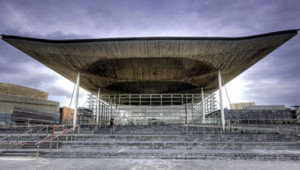The Communities, Equality and Local Government Committee is to be congratulated on having elicited from the Welsh Government ‘Details of the work of, and output from, the Welsh Government’s Broadcasting Advisory Panel’, a feat no one else had managed to achieve.

Ken Skates, Deputy Minister for Culture, Sport and Tourism, included the Report in materials sent to the Committee at its request following his appearance before it on 18th November 2015 as part of its Inquiry into the BBC Charter Review. It appears among other interesting material and comments under item 6 of the agenda for the CELG meeting on the 13th January here.
When the Institute of Welsh Affairs was conducting its Media Audit 2015 it proved impossible to find out anything about the workings of the Broadcasting Advisory Panel. The opacity of its proceedings had been noted almost since its inception, though the names of its members were known. The IWA had to make a Freedom of Information request to learn anything and that merely said that it was a Task and Finish Group and had last met in 2013.
We noted in our Audit’s Introduction that the Welsh Government had rejected the CELG’s recommendation for an independent advisory forum on media policy and a review of the media needs of the people of Wales, despite acknowledging that it was ‘a reasonable request and not altogether unexpected’. The recommendation had been contained in the CELG’s 2012 report, The Future Outlook for the Media in Wales.
As ‘a crucial first step in addressing the Committee’s concerns’ at that time, the Welsh Government said it would set up a Broadcasting Advisory Panel ‘to review matters in relation to broadcasting’ and to advise on whether there should be a review of media needs. The IWA’s Media Audit states, ‘To our knowledge the panel did not publish any report or advice to Ministers. Its final meeting was in 2013.’
Well, now we know they did give a report, dated May 2014. Reading it, one is bound to ask why it was so essential to keep this report confidential.
The Report addressed:
-
Democratic deficit and an absence of plurality
-
Broadcast institutions and accountability
-
Language, culture and what makes Wales unique
-
Economic benefits
-
The PSB needs of Wales
It declared its context robustly:
This is about more than politics. Wales is a nation in its own right with a unique culture and language. Its bilingual ethos and its nature and history are distinct within the UK; they need to be safeguarded and celebrated. The UK broadcasters have yet to succeed in balancing this need against the priority given to the needs of the UK as a whole.
Each of the four nations of the UK has contributed to its success and strength. A modernised and increasingly globalised media seems to have forgotten this. As a result, local programming hours have been lost as financial resources have been cut.
Using words such as ‘urgent’ and ‘vital’ the Panel pushed for a review of PSB in Wales:
The PSB needs of Wales need to be quantified and service delivery monitored and evaluated… Following extensive devolution of powers to the devolved governments there has been no evaluation or assessment of whether current public service obligations remain fit for purpose…. This work should not be delayed.
It was the IWA which took on this task.
The Panel made a single but over-arching recommendation:
The Welsh Government should create and empower a new Public Service Media Council for Wales.
The first of the recommendations in the IWA Media Audit is the creation of a Media Advisory Panel.
The version of this body which the Broadcasting Advisory Panel envisaged had in its Terms of Reference twelve tasks. Amongst the three which it considered as ‘requiring immediate attention’ was a review of PSB and recommendations for actions. Not a million miles from the IWA Audit’s approach.
There is a striking amount of detail offered as to how this advisory Council would be constituted and function. So urgent was the need felt to be that an Interim Council was proposed to start work immediately.
But Welsh Government did not commission a review of PSB needs and did not set up even an interim Council. Even after 18 months it did not volunteer knowledge of the BAP’s recommendations to a committee of the National Assembly’s committee inquiring into this very subject – surely, an inexplicable lack of respect. Neither has it explained why the BAP’s recommendations were rejected.
We have heard vague remarks from the Deputy Minister about how it hadn’t been, wasn’t and isn’t the right time for a review and yet there has been a warm welcome on all sides for the IWA’s Audit. When would have been a better time than this period of impetus in the debate on broadcasting in the UK?
Now that we know that the Broadcasting Advisory Panel advised the creation of a body with oversight of the media in Wales, can there be any further doubt that is the direction in which the weight of expertise is pushing the Welsh Government?
This article first appeared on the IWA’s clickonwales site on 20th January 2015.